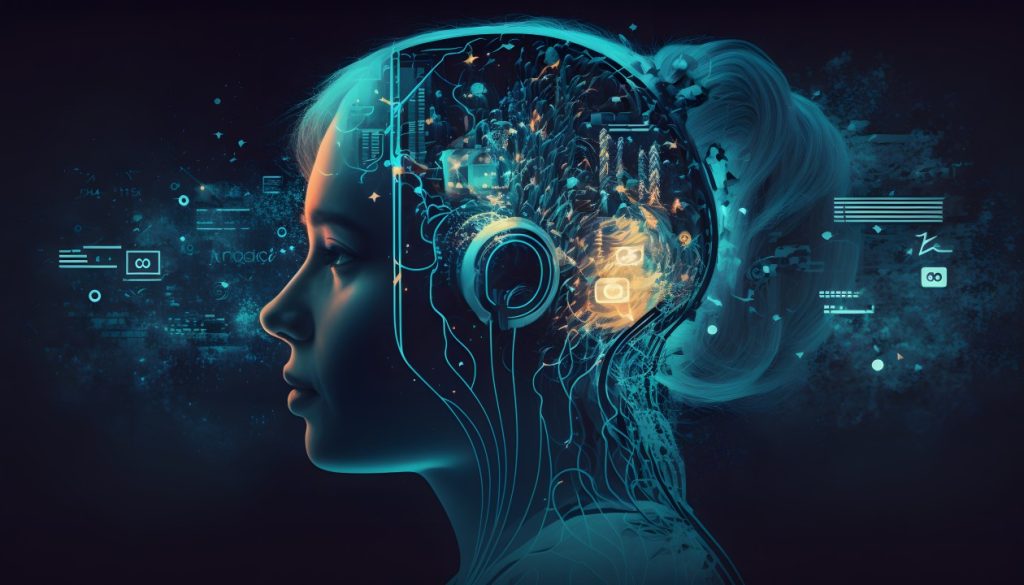AI in Mental Health
AI in Mental Health
AI in Mental Health is making it easier for people to access care and get the help they need, often in ways that are more private, faster, and personalized. Traditionally, mental health care involves seeing a therapist or counselor in person, which can be intimidating, expensive, or simply not available for everyone. AI is helping solve these problems by offering digital tools that can assess mental health, provide support, and even recommend treatments, all from the comfort of a patient’s home. This makes mental health care more accessible and convenient for people who might not otherwise seek help.

One way AI is helping in mental health is through virtual assistants and chatbots that can provide support in real time. These AI tools can have conversations with people, ask about their feelings, and help assess their mental health. For instance, if someone is feeling anxious or depressed, they can talk to an AI-powered chatbot that listens to their concerns and offers advice, coping strategies, or resources. While this isn’t a replacement for professional therapy, it can be a helpful first step for people who may be unsure about seeking traditional help or need immediate support.
AI can also analyze data from voice patterns, facial expressions, or even social media activity to detect signs of mental health issues. For example, changes in how someone speaks—such as speaking more slowly or with less energy—might be a sign of depression. AI can pick up on these subtle cues and alert the person or their healthcare provider to potential problems before they become more serious. This ability to monitor mental health in real time allows for earlier intervention, helping people get help sooner and potentially preventing more severe mental health crises.
Another way AI is improving mental health care is by providing personalized treatment recommendations. Every person’s mental health needs are different, and treatments that work for one person might not work for another. AI can analyze a person’s history, symptoms, and even genetic information to suggest treatments that are most likely to be effective for them. This might include recommending specific types of therapy, medications, or lifestyle changes based on what has worked for others with similar conditions. By tailoring treatment to the individual, AI helps make mental health care more effective and focused on the unique needs of each patient.
Finally, AI is helping to make mental health care more accessible to people in remote or underserved areas. In places where there aren’t enough mental health professionals, AI tools can offer a form of support and guidance when in-person therapy isn’t available. People can use apps or online platforms to get mental health advice, track their moods, or learn coping techniques, all without needing to travel to see a therapist. This not only increases access to care but also reduces the stigma that can sometimes come with seeking help for mental health issues. In short, AI is making mental health care more available, personalized, and effective for people everywhere.

